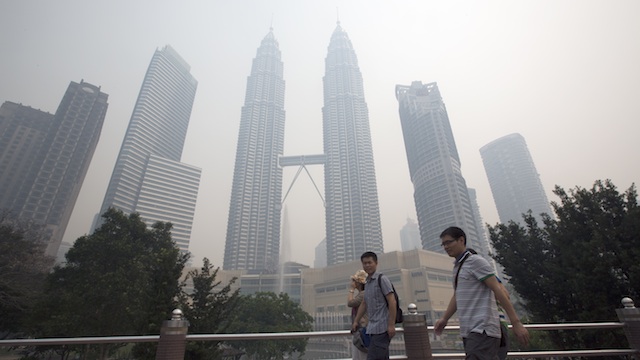SUMMARY
This is AI generated summarization, which may have errors. For context, always refer to the full article.

BANDAR SERI BEGAWAN, Brunei Darussalam – Southeast Asian leaders on Wednesday, October 9, approved a new system aimed at cracking down on illegal forest fires blamed for the region’s worst smog crisis in years.
The Haze Monitoring System, developed by Singapore, is intended to hold plantation companies accountable for controversial land clearance activities which cause the annual fires.
It will use land concession maps and high-resolution satellite images of the blazes to determine the culprits.
“We hope the respective ministries will upload the digitized concession maps as soon as possible,” said Singapore’s Environment Minister Vivian Balakrishnan.
“It will send a strong signal to all companies that they will be held accountable,” he wrote on his Facebook page after the system was approved by the 10-nation Association of Southeast Asian Nations at a summit in Brunei.
Several big palm oil companies have been accused of lighting fires on their concessions to clear land in Indonesia’s Sumatra island.
The Roundtable on Sustainable Palm Oil has said it would investigate some of its members over the allegations.
The group – which produces a sought-after certification for producers deemed sustainable – bans its members from using burning to clear land.
In June Singapore and Malaysia were blanketed by the putrid, choking smog for days, affecting tourism, forcing schools to close and causing a rise in respiratory illnesses.
Indonesian President Susilo Bambang Yudhoyono had to apologize to both countries.
Analysts had warned that if the smoke becomes an annual crisis, some multinational companies might consider relocating operations and expatriate families out of Singapore, a regional financial centre.
Southeast Asia suffered its worst haze outbreak in 1997-98, which cost the region an estimated $9 billion. It was hit with a serious recurrence in 2006. – Rappler.com
Add a comment
How does this make you feel?
There are no comments yet. Add your comment to start the conversation.